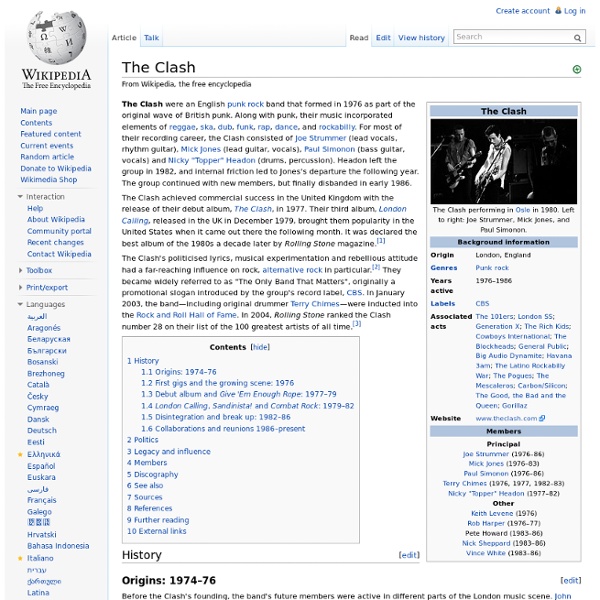Bienvenue! (Welcome from the curator)
eliteemusic
Audiversity
Kriptofonema
DUBSTEP !!!! : WE LOVE DUBSTEP
Dubstep is a genre of electronic dance music which has its roots in London 's early 2000s UK garage scene. The genre's name was coined by Ammunition Promotions. Musically, dubstep is distinguished by its dark mood, sparse rhythms, and emphasis on bass . Dubstep started to spread beyond small local scenes in late 2005 and early 2006, with many websites devoted to the genre appearing on the internet and thus aiding the growth of the scene, such as dubstepforum, the download site Barefiles and blogs such as gutterbreakz. [1] Simultaneously, the genre was receiving extensive coverage in music magazines such as The Wire and online publications such as Pitchfork Media . Interest in dubstep grew significantly after BBC Radio 1 DJ Mary Anne Hobbs began championing the genre, devoting a show to it (entitled "Dubstep Warz") in January 2006. [2] [3] [4] [ edit ] Rhythm Dubstep rhythms are usually syncopated , and often shuffled or incorporating triplets . [ edit ] Bass drops and rewinds
Via Chicago Pt. 2
Let's talk about Post-Rock; Coined by music critic Simon Reynolds in 1994, the term post-rock was initially used as a means to describe music which used typical rock instruments to make very non-rock music. It's a meaningfully ambiguous term that can be used to describe everything from Mogwai, to Slint, to Godspeed You Black Emperor. At it's best post-rock is used to describe those groups who had a penchant for deconstructing typical rock forms, while still keeping one foot in the genre (see The For Carnation, Him, or Do Make Say Think). At it's worst, post-rock was just a cooler way for saying Prog (see that band I tend to criticize too much, even though I really like Tyondai and "Atlas"). While there were many great post-rock scenes, none were more vibrant and exciting than Chicago's. Tortoise - Gamera/Cliff Dweller Society Ep (1995, Duophonic) If you were to choose one band to be the centre-piece of the Chicago post-rock scene, Tortoise would certainly be the unanimous choice.
untitled
February 2005
Well, Im back after a 2 day vacation that resembled a tumbling fall down the mortal coil. Day's off from work tend to fuck me up a litte. I let my self oversleep and do nothing productive, wake up at wierd times then I don't sleep when i should. The second one is still highly suspect, Sounds like its not mix very well as an album, but no "details" got released about what it was leaked from. Today I picked up 3 new Cd's one Is actually not used , or old .. wow .. I had to re-pick up Autechre's Confield, my least favorite, but seemingly highly popular album. I picked up a Cd with the most interesting Blurb ever, I can be rather outspoken about how much I think Boards of Canada are overrated, and the newest album Geogaddi, was in my opinion kinda boring. Strong indeed, and upon listening to the album, I must openlt recommend tha album to BoC's less beat oriented fans for sure. The last album I picked up was FunKungFusion : Ninja Kuts vol 3.Nice little doubles Cd of ninja tunes from 1998.
The Raconteurs - el avance de una entrevista
CaseOfThePunks (LR and CCC) nos mostró unas fotos que consiguió, pertenecen a una entrevista para una revista, no se sabe cuando saldrá ya que las imagenes las obtuvo de una fuente cercana a ella El fotógrafo es Craig McDean, él ha fotografiado mucho a Karen Elson, será por eso talvez que también la tomó en cuenta para ésta sesión. Las fotos están muy bizarras pero muy buenas La foto de Jack y Karen es taaan linda !!! es todo x ahora, saludos III !



